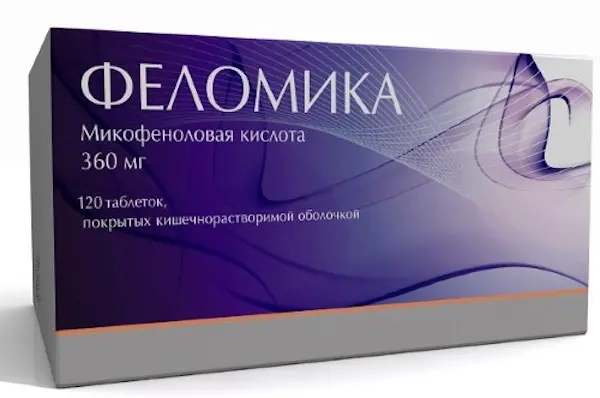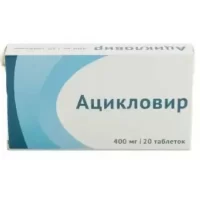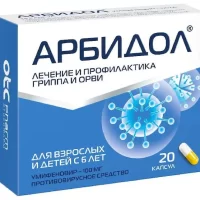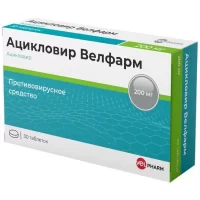Description
Pelomics Pharmacodynamics
Mycophenolic acid inhibits the synthesis of guanosine nucleotides through selective inhibition of the key enzyme of purine synthesis inosine monophosphate dehydrogenase.
Due to this mechanism effectively suppresses the proliferation of T- and B-lymphocytes, and to a much greater extent than other cells, since the proliferation of lymphocytes depends mainly on the synthesis of purines de novo.
Suppression of proliferation of T- and B-lymphocytes by mycophenolic acid complements the action of calcineurin inhibitors that disrupt cytokine production and affect T-lymphocytes in the resting phase of the cell cycle.
Indications
Prophylaxis of acute graft rejection in patients with allogeneic kidney transplants receiving basic immunosuppressive therapy with cyclosporine in microemulsion form and with glucocorticosteroids.
Contraindications
– Hypersensitivity to mycophenolate sodium, mycophenolic acid, mycophenolate mofetil (mycophenolic acid derivative) or any component of the drug.
– Childhood (efficacy and safety have not been studied).
– Pregnancy.
– Breast-feeding period.
Caution
– Congenital hypoxanthine-guanine-phosphoribosyl-transferase deficiency
(including in Lesh-Nyhan and Kelly-Sigmiller syndromes).
– Diseases of the gastrointestinal tract in the phase of exacerbation.
Administration in children
The efficacy and safety of mycophenolic acid in children have not been studied. There are limited data on the pharmacokinetics of MFK in children who have undergone kidney transplantation. No specific recommendations on dosing regimen in children have been developed at this time.
Administration during pregnancy and lactation
The drug is contraindicated in pregnancy and during breast-feeding.
Dosage and administration
- Inside, the tablets should be swallowed whole, without chewing; do not break the tablets. It may be taken on an empty stomach or with food.
- Therapy with mycophenolic acid in patients who have not received it previously is started within the first 48 hours after transplantation. The recommended dose is
- 720 mg (4 tablets of 180 mg or 2 tablets of 360 mg) twice daily (daily dose of 1,440 mg). In patients receiving mycophenolate mofetil (MMF) at a dose of 2 g, MMF can be replaced by mycophenolic acid at a dose of 720 mg 2 times daily.
- Use in elderly patients
- Correction of dosage regimen in elderly patients is not required.
- Administration in patients with impaired renal function
- In patients with delayed recovery of renal transplant function there is no need to change mycophenolic acid dosage. Close monitoring of patients with chronic severe renal dysfunction (glomerular filtration rate less than 25 ml × min-1 × 1.73 m-2) is required.
- Use in patients with impaired liver function
- In patients with severe liver disease associated with predominant parenchymal damage, no dose adjustment of mycophenolic acid is required.
- Episodes of rejection reaction
- Transplant rejection reactions do not alter the pharmacokinetics of mycophenolic acid. No changes in dosing regimen are required in these cases.





